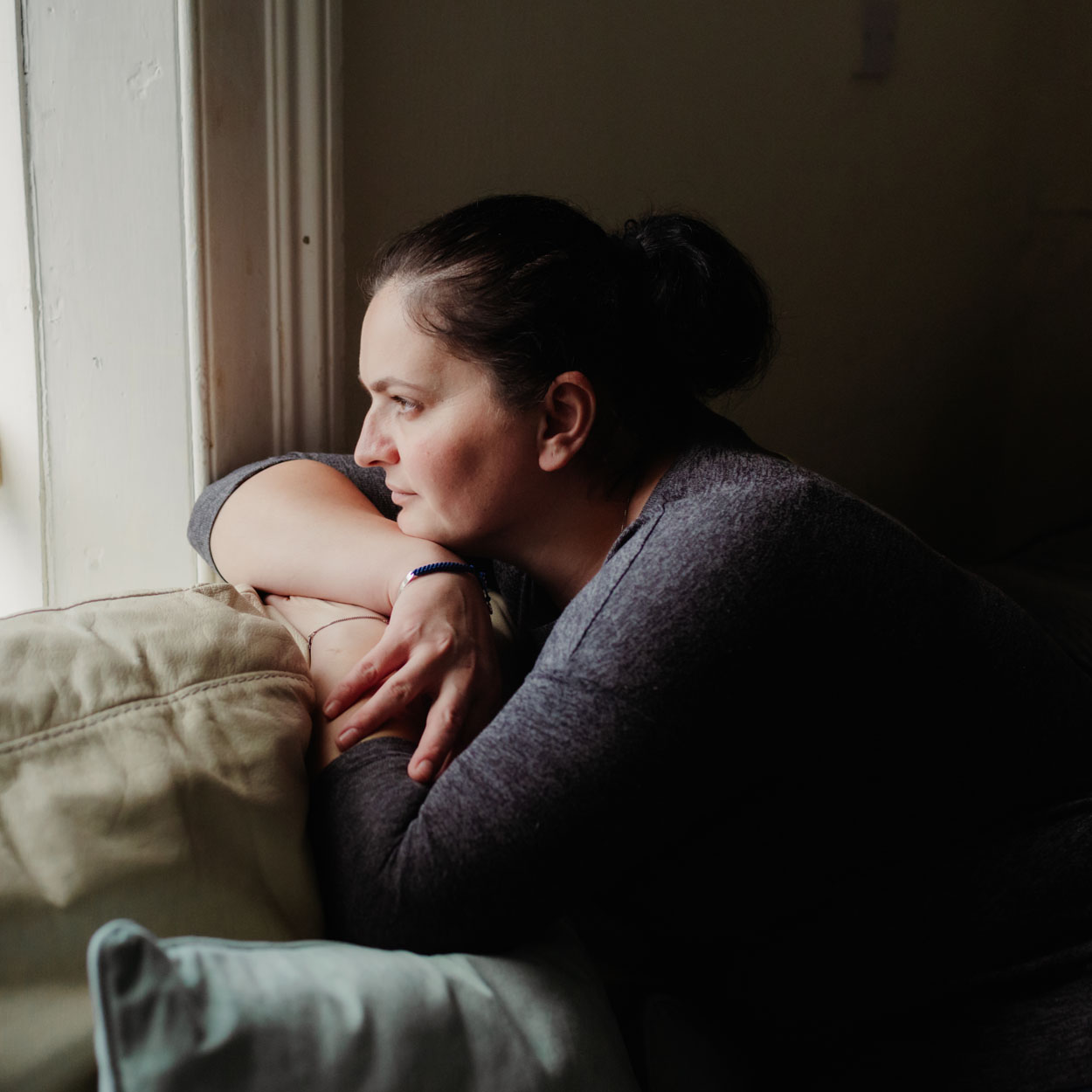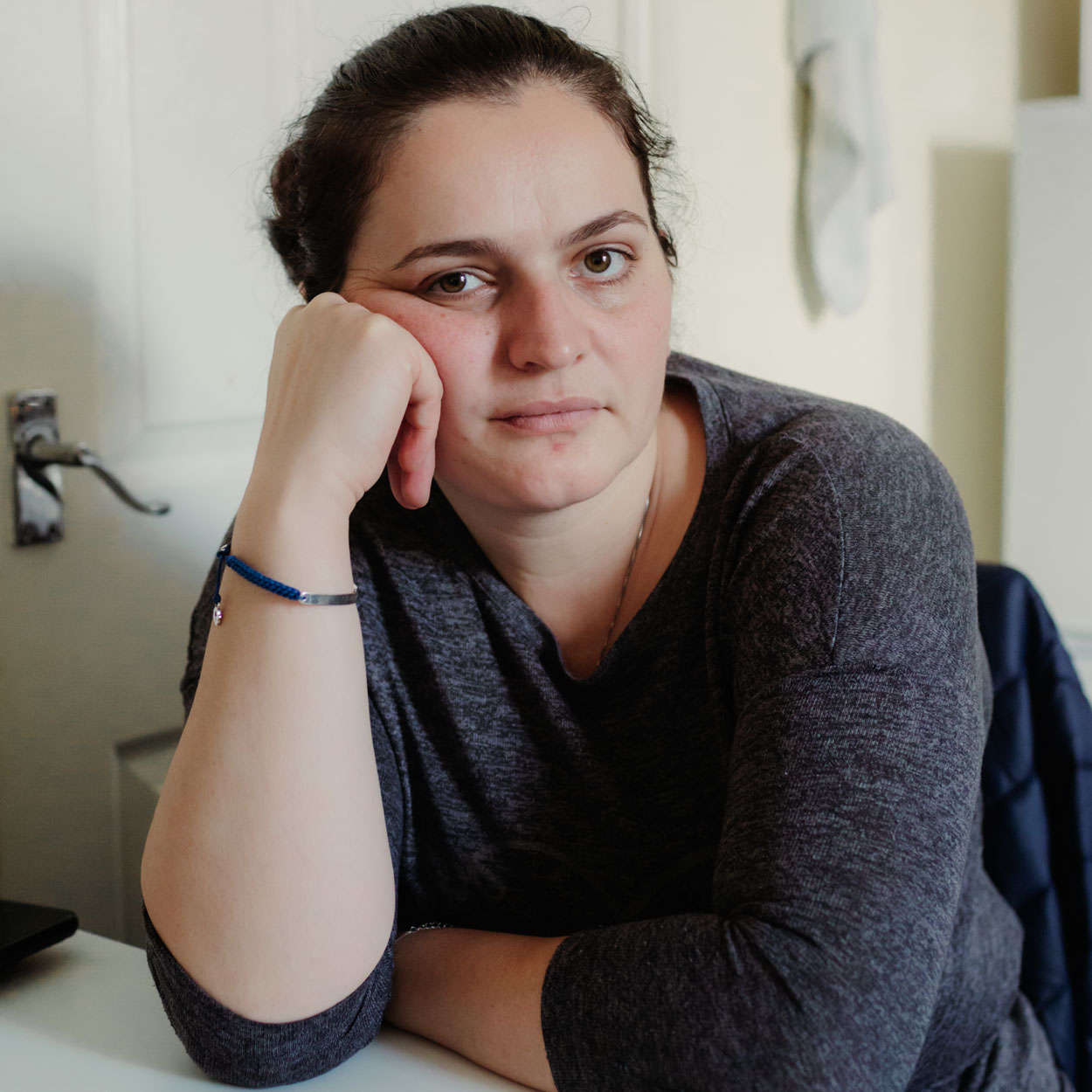Hane experienced sexual and gender-based violence and began the process to claim her asylum status, having just given birth to her daughter. Nearly eight years on, she has a seven-year-old daughter, a four-year-old son, and is still in the asylum system.
She has faced ongoing housing and health issues, and with two children, it has been hard to look after herself and her family while worrying about being returned to persecution.
Hane and her then new-born daughter were originally placed in a flat far from local shops, meaning buying basic necessities was a challenge in itself. After her home was broken into she was moved elsewhere. The family now live in accommodation with leaking ceilings and the Home Office’s accommodation provider does not respond to maintenance requests.
Since the birth of her son, Hane has been in close contact with the NHS. She has endured ongoing issues with referral processes for him, and been victim to racism from staff over the phone.
Unfiltered Lives - When refuge isn't safe
Her experience with the asylum system itself has been arduous and futile, too. Following problems relating to dates and in communicating with an interpreter, Hane has been in court six or seven times. She also underwent the interview for her asylum with her new-born daughter. Although told she was allowed breaks, she explains how it felt in her best interest to be quick, “I was worried during the interview that [my daughter] would wake up and that I wouldn’t be able to finish the interview. I had heard from other people that if you weren’t able to finish the interview in a day then who knows when you’d be able to have another.”

She feels this may have led to her words being misinterpreted, prolonging her time in the system. Hane says if she could change anything for women who come to the UK and undergo the same system, it would be for the process to be quicker, and for the right person to be employed as translator.
The impact of the wait time for asylum status has been immense for Hane. Her mental health has suffered and, if not for the support of the Refugee Women Connect charity, she wouldn’t have access to food each week. Hane’s son has been diagnosed with autism but because of her status she cannot access any support for her son. These issues, along with her current accommodation problems, have left Hane feeling low and alone.
Both of her children were born in the UK, and Hane wants them to feel like the other children in their school. For her son’s birthday, she bought a cake and – using sweets from when her son and daughter went trick-or-treating – made party bags for the other children. Her daughter will be eight soon, and Hane is worried about making her children feel different to others as they get older and more aware.
Hane is concerned about the future for her children. She has applied for citizenship for her daughter and is still awaiting a decision. “Both of my children were born in the UK, I have said before if they send my children back to Albania, what are they going to do? They don’t know anything about Albania, they don’t speak the language, and they don’t know anything about the country […] even if here they don’t have the best life,” Hane says.

Although she volunteers, Hane is unable to work due to her status. She pays £26 a week for bus passes to take her children to school. Her daughter’s school is 1.95 miles from her home, if it were two miles she would be entitled to a free bus pass. When looking for help, Hane was advised to change schools, but with a child who has autism, he needs to attend a school that can accommodate his needs.
“Eight years I have been waiting, I feel like I have been in prison for eight years, just that I’m allowed to go out but nothing else.” With even accessing basic necessities, such as suitable housing and food, proving a challenge, Hane is struggling to keep going.